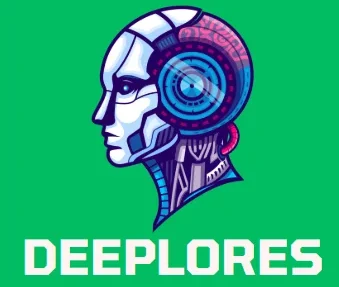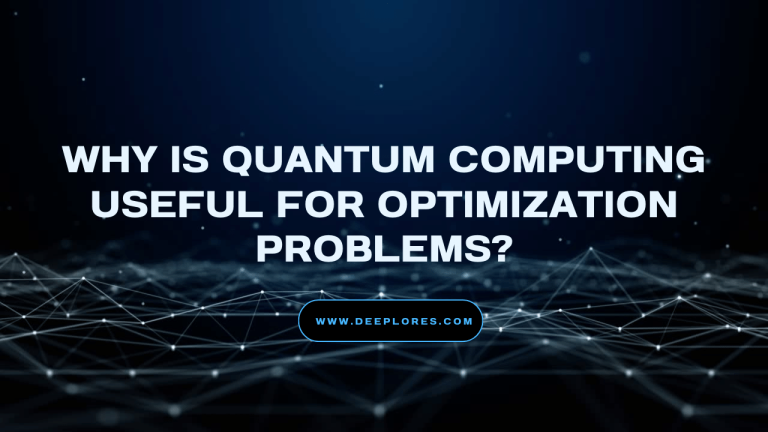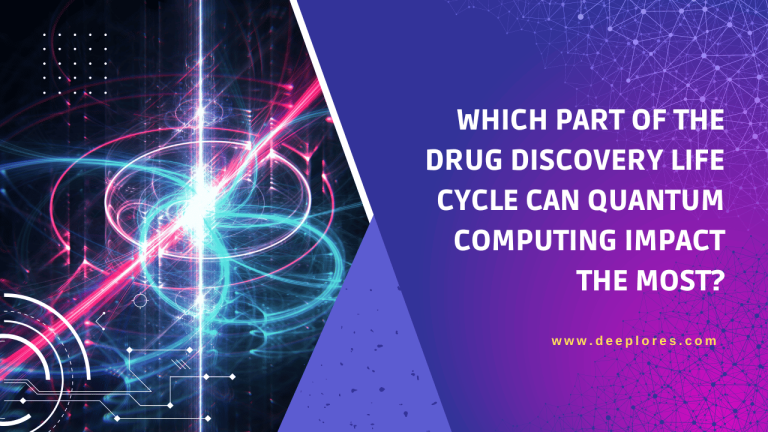Which Technology is Making Quantum Computing Easier to Access and Adopt?
In the vast expanse of the digital cosmos, quantum computing holds the promise of transforming our understanding of the universe. However, the question arises, “Which technology is making quantum computing easier to access and adopt?” Join us on this exciting exploration into the wonders of the quantum realm, and discover how cutting-edge advancements are democratizing this once arcane field.
Cloud-Based Quantum Computing: Your Gateway to the Quantum Universe
Accessing a quantum computer was once limited to top-tier research labs. Today, this groundbreaking paradigm has been flipped by cloud-based quantum computing. Tech giants like IBM, Microsoft, and Google are leading the charge by offering quantum computing as a service (QCaaS). These platforms provide user-friendly interfaces, easing the journey for beginners into the quantum realm. The advent of QCaaS is a quantum leap towards overcoming one of the biggest barriers to quantum computing adoption.
Simplifying Quantum with Intuitive Programming Languages
Traditional programming languages aren’t suited to harness the extraordinary capabilities of quantum computing. Enter quantum programming languages. Tools like Q# from Microsoft, and Qiskit from IBM are setting new standards in quantum software development. They offer intuitive and accessible coding experiences, turning the tide in favor of a new wave of quantum programmers.
Quantum Error Correction: Nurturing Quantum Reliability
Quantum computing is notorious for its fragility. The smallest environmental disturbances can cause ‘quantum decoherence,’ leading to errors. However, advances in quantum error correction techniques are mitigating these issues. Through complex algorithms and redundancy methods, researchers are improving the reliability of quantum computations, fostering greater trust in the technology.
Quantum Cryptography: Safeguarding the Quantum Revolution
With great power comes great responsibility. The arrival of quantum computing brings new security concerns, as current encryption methods may become obsolete. To counteract these potential threats, quantum cryptography has emerged. This discipline uses principles of quantum mechanics to secure data, making quantum computing adoption more trustworthy and reliable.
Quantum Machine Learning: The Quantum-AI Confluence
The convergence of quantum computing and artificial intelligence (AI) is creating a seismic shift in data analysis. Quantum machine learning algorithms harness the exponential computational power of quantum systems to analyze complex datasets and make predictions. This revolutionary development is set to transform industries from healthcare to finance, further fueling the enthusiasm for quantum technology adoption.
Quantum Computing in Real-World Applications

Often perceived as a futuristic technology, quantum computing is no longer confined to the realm of theoretical physics. With the advent of quantum computing platforms and advancements in quantum hardware, quantum computing’s real-world applications are becoming increasingly accessible. From optimization problems in logistics and finance to complex simulations in materials science and healthcare, the practical utility of quantum computing is accelerating its adoption across various industries.
Quantum Education: Sowing the Seeds of Quantum Literacy
Finally, the most crucial component driving quantum computing accessibility and adoption is education. The increasing availability of online resources, university courses, and dedicated quantum computing textbooks, is bridging the knowledge gap. This widespread quantum literacy effort is empowering individuals and businesses alike to embrace the quantum revolution.
As we journey into this bold new era of quantum computing, it’s clear that an array of technologies are making quantum more accessible and easier to adopt. From cloud-based platforms to quantum-specific programming languages and quantum machine learning, we are witnessing the dawn of a quantum-empowered future. While challenges persist, the continuous evolution and democratization of these technologies are reassuring.
Join us in the quantum era, as we step into the world where the impossible becomes possible, and the future becomes now.
Quantum Simulation Tools: The Training Grounds for Quantum Programming
No journey into quantum computing is complete without a pitstop at quantum simulation tools. These tools allow users to simulate quantum algorithms on classical computers, providing a practical, hands-on way to learn about quantum computing. Simulators such as IBM’s Qiskit Aer and Google’s Cirq are empowering developers and researchers to experiment, innovate, and enhance their quantum programming skills.
Quantum Hardware Advancements: The Backbone of the Quantum Revolution
If quantum software is the brain of quantum computing, quantum hardware is its backbone. Technological advancements in quantum bits or ‘qubits’, the basic unit of quantum information, are unlocking new potentials in quantum computing accessibility. Whether it’s superconducting qubits, topological qubits, or trapped ion qubits, each development is accelerating us towards the much-awaited age of quantum supremacy.
Quantum Computing Architecture: Building Blocks of Quantum Machines
A pivotal factor in making quantum computing more accessible is the evolution of quantum computing architecture. Quantum gate-based computing and quantum annealing technologies provide different methodologies for manipulating qubits, each with its unique advantages. Quantum gate-based computing is more versatile and can solve a broad range of problems, while quantum annealing is specialized for specific optimization problems. This versatility offers a wider range of possibilities for quantum computing adoption.
Quantum Networking Solutions: The Quantum Internet Horizon
The future of quantum computing isn’t just about standalone quantum computers, but interconnected quantum networks. Quantum networking solutions are laying the groundwork for a ‘Quantum Internet’, a network that uses quantum phenomena to create virtually un-hackable communication channels and link quantum computers worldwide. This groundbreaking innovation will enhance the accessibility of quantum computing, driving its adoption at an unprecedented scale.
Quantum Computing in Diverse Fields: A Panoramic View
Quantum computing’s versatility opens new vistas in several fields, all of which stand to gain from its unique capabilities. From optimizing trading strategies in finance to designing new drugs in healthcare, and from solving complex logistical problems to creating new materials in material science, quantum computing is set to revolutionize our world.
Paving the Way Forward: A Quantum Leap into the Future
The journey towards accessible and widely adopted quantum computing is more than a technological endeavor – it’s a collective effort of innovators, educators, policymakers, and users alike. As we stand on the brink of this quantum leap, it’s crucial to continue investments in education, infrastructure, and collaborative initiatives. Only through this concerted effort can we truly harness the power of quantum computing, turning this quantum dream into a reality for all.
Also Read: Can a Property Owner Block an Easement? [Detailed Guide]
FAQs About Which Technology is Making Quantum Computing Easier to Access and Adopt?
Q: What role does quantum networking play in advancing quantum computing accessibility?
A: Quantum networking forms the basis of the Quantum Internet, a network of interconnected quantum computers. By facilitating secure quantum communication, it increases the reach and utility of quantum computing, thus promoting its accessibility.
Q: How is quantum computing being used in scientific research and simulations?
A: Quantum computing can handle complex calculations and simulations far beyond the capabilities of classical computers. This makes it a powerful tool for scientific research, including quantum mechanics simulations, climate modeling, and biological simulations.
Q: Which quantum computing platforms are suitable for beginners?
A: Cloud-based quantum computing platforms such as IBM Quantum Experience and Google Quantum Computing Service are beginner-friendly, offering accessible interfaces, educational resources, and quantum simulation tools.
Q: Can quantum computing be integrated into existing software development processes?
A: Yes, quantum programming languages like Qiskit and Q# are designed to work alongside traditional languages, enabling integration with existing software development processes. Furthermore, quantum computing platforms provide APIs for seamless integration.
Q: What quantum computing hardware advancements are driving accessibility?
A: Developments in the design and manufacture of qubits, advancements in quantum error correction, and improvements in quantum computer cooling systems are some hardware advancements driving quantum computing accessibility.
Q: What are the latest advancements in quantum computing accessibility?
A: The advent of cloud-based quantum computing services, user-friendly quantum programming languages, and quantum error correction techniques are key advancements increasing quantum computing accessibility.
Q: How can businesses adopt quantum computing technology?
A: Businesses can leverage cloud-based quantum computing platforms to access quantum resources. They can also invest in quantum education for their workforce and collaborate with quantum technology providers.
Q: Which industries can benefit the most from adopting quantum computing technology?
A: Industries such as healthcare, finance, logistics, and materials science are poised to benefit significantly from quantum computing, due to its potential to solve complex optimization problems and analyze vast datasets.
Q: What are the potential risks and challenges associated with adopting quantum computing?
A: Quantum computing poses challenges including quantum error susceptibility, high resource requirements, and security risks. However, advancements in error correction, quantum cryptography, and quantum hardware are progressively mitigating these issues.
Q: Are there any educational resources available to help individuals learn about quantum computing?
A: Yes, numerous resources are available including online courses, textbooks, and tutorials from reputable institutions and platforms, aimed at different skill levels.





![How Much is iPhone XR in Nigeria? [Latest prices, 2024] 12 How Much is iPhone XR in Nigeria](https://deeplores.com/wp-content/uploads/2023/08/How-Much-is-iPhone-XR-in-Nigeria-768x432.png)

